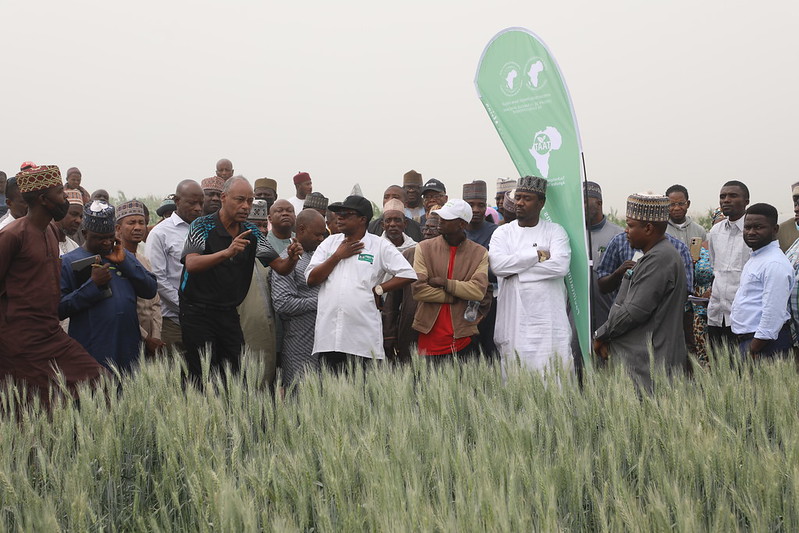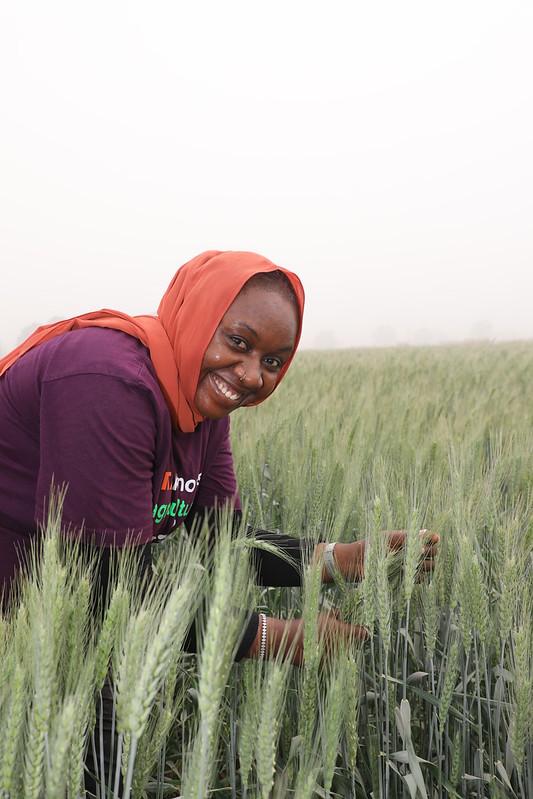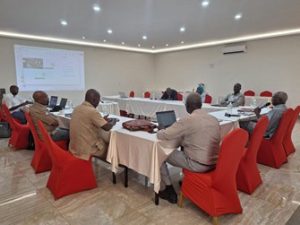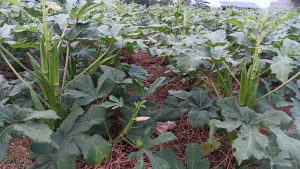NIGERIA: TAAT hosts Stakeholders in second Wheat Seed Production Workshop

As part of aggregated efforts at facilitating a sustainable wheat seed system in Nigeria, Technologies for African Agricultural Transformation (TAAT) programme, in collaboration with different stakeholders, held the second edition of its wheat seed production training of trainers workshop in Kano.
The workshop which comprised visit to wheat fields and processing centres held from the 5th to the 6th of February 2024 in Kano, North-west Nigeria.
The ToT workshop brought together researchers, seed companies, community seed producers, farmers and development partners to brainstorm on innovative seed varieties and access, and chart a roadmap for a robust wheat seed system in Nigeria.
Organised in partnership with the Federal Ministry of Agriculture and Food Security, Kano State Government, the International Centre for Agriculture in the Dry Areas (ICARDA), and the Lake Chad Research Institute (LCRI), the two-day event underlined TAAT’s focal commitment to transforming African food systems through the deployment of path-breaking technologies and sustainable seed systems. Other partners include the National Agricultural Seed Council (NASC), the Sasakawa Africa Association (SAA) and the Flour Milling Association of Nigeria (FMAN).
According to the Head of the TAAT Clearinghouse, Dr Solomon Gizaw, the workshop succeeded in facilitating a robust seed sector that is capable of providing adequate quality wheat seeds that are accessible and affordable to Nigerian farmers.
“Through this workshop, TAAT, alongside its partners, identified challenges mitigating the wheat seed sector in Nigeria, the causes of seed mixtures along the seed value chain, the missing gaps in the seed development process, provide technical knowledge on wheat seed production, including quality seeds selection, good agronomic practices, and storage, and exchanged knowledge on strategies for a sustainable wheat seed production in Nigeria,” Dr Gizaw said.
The workshop equally enhanced participants’ knowledge of wheat seed production, post-harvest handling and storage, Variety Maintenance and Early Generation Seed production, Marketing of wheat seeds and grains and on-farm visits to practically demonstrate improved production processes.
A key outcome of the workshop was the the acquisition of skills for quality seed production and capacity strengthening for seed companies and Community-based seed producers.
TAAT, according to Dr Chrys Akem, the TAAT Programme Coordinator, “has provided high-quality seeds, breeds, and fingerlings to beneficiaries in 40 countries, helping African food production increase by more than 12 million metric tonnes. The programme has also financed the provision of heat-tolerant wheat varieties in Sudan and Ethiopia, reducing wheat import by 50% and expanding wheat cultivation to 400,000 hectares.”
The two-day event ended with a visit to wheat fields in Kura village, Kano, and a cereal warehouse in Kwanar Dangora in Bebeji Local Government Area where participants interacted with the processors and farmers and shared useful experiences on good agricultural practices in wheat farming. Abdulhamid Saleh Mudawa, a two hectare wheat farmer in Kura, engaged the participants on how access to quality, heat-tolerant wheat seed can facilitate a wheat revolution geared towards self-sufficiency in Nigeria.
A Wheat Transformation Strategy Plan for Nigeria
Wheat, a strategic commodity worldwide, is a critical commodity for ensuring food security. Nigeria has one of the biggest food import bills; importing more than 5 million metric tons (MT) of wheat each year to meet domestic demand. Nigeria spends over $2 billion on food imports yearly. Regretfully, local output remains remarkably low, accounting for only 5% of local demand.
Low levels of mechanised farming among smallholder farmers, inadequate modern agronomic practices, inconsistent and insufficient supply of high-yielding seed varieties, inadequate irrigation systems, and inadequate storage facilities have all been linked to the low production capacity at the local level. The government established a strategy group and created the Wheat Transformation Strategy Plan to do this.
Therefore, the Federal Government of Nigeria took a bold step in actualising the plan through the flag-off of the 2023/2024 dry season wheat farming under the National Agricultural Growth Scheme and Agro [Pocket (NAGS/AP) in November 2023. The NAGS/AP came via a loan of $134 million dollars from the African Development Bank.
The event was the flag-off of about 123,000 ha for the production and distribution of improved seeds and other agro–inputs to wheat farmers across the wheat-producing states. The wheat component of the fund has a target of reaching 150,000 to 250,000 farmers provided with a 50% input subsidy. The seeds were sourced locally (Borlaug 100 and Attila Gan Attila varieties), and a total of 6.795Mt was imported to meet the demand for the season.
Recent Stories
Related Stories
- Jigawa State Delegation explores scale-up Opportunities with TAAT
- TAAT holds Wheat Field Days across Nigeria
- South Sudan: TAAT holds High-level Consultative Workshop on Food Systems Transformation
- TAAT holds regional workshop for Seed Actors in fragile states
- TAAT Engages Nigerian Stakeholders in Wheat Seed Sector Training





